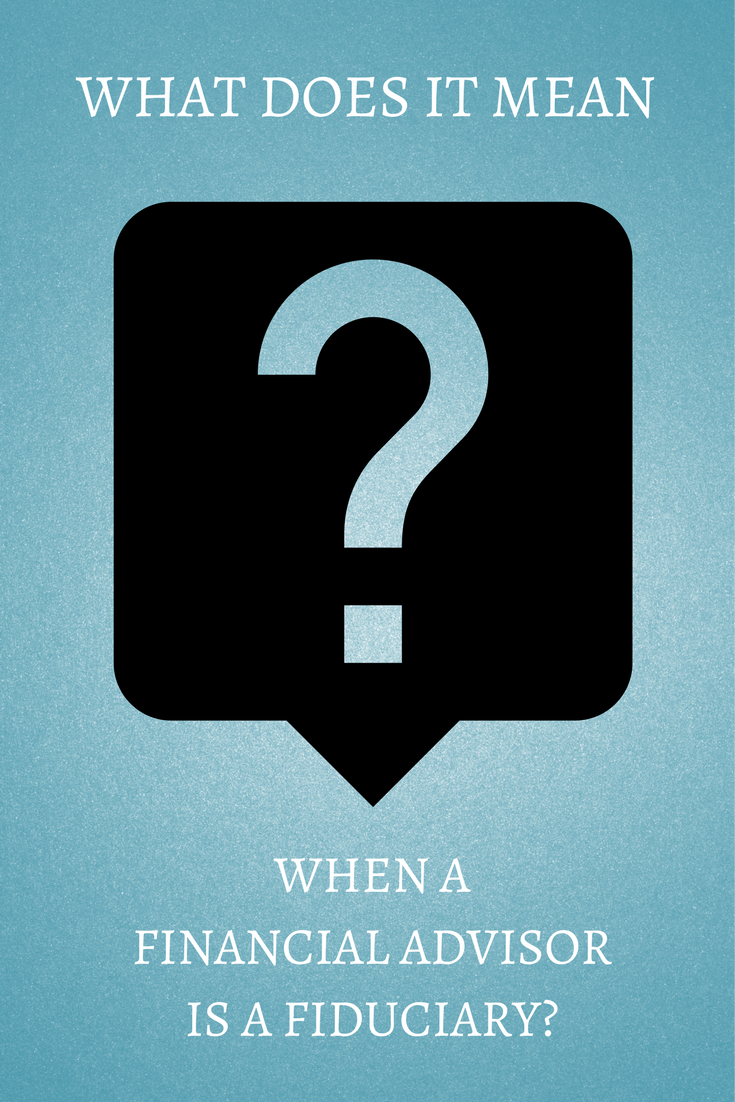Choosing a financial advisor can be one of the biggest decisions you’ll ever make. It’s important to choose one that is a good fit for you and your financial goals. You’ll want to interview several before making a decision about who you want to work with. And one of the most important things you need to know is whether or not they are a fiduciary. Most people though, don’t know to even ask this question of advisors they are interviewing. Here’s what you need to know . . .

The word fiduciary basically means “trust”, especially in a relationship between a trustee and a beneficiary. With a financial advisor, it means they are legally and ethically obligated to act in his or her clients’ best financial interest, even if it means less or no compensation for them.
In a survey of 200 independent financial advisors regarding their fiduciary standard, there were a few surprising results.
- 80% of the advisors surveyed consider themselves to be fiduciaries. But over 80% of those considering themselves to be fiduciaries disagreed with the statement “Fiduciary oversight is applied consistently to all my clients.” The key word being “consistently”.
- And 75% of those surveyed said that acting in their client’s best interest defines them as a fiduciary.
Most advisors though agree and understand that acting in their clients’ best interests is the definition of the fiduciary standard.
The fiduciary standard was established as part of the Investment Advisors Act of 1940. Advisors can be regulated by the SEC or state security regulators, but both require them to uphold the fiduciary standard, specifying that an advisor must place their client’s best interest above their own and that investment advice is given based on accurate and complete information.
It’s important to understand that a financial advisor who is a fiduciary is different than a stockbroker. The biggest difference is that stockbrokers don’t have to be held to the same fiduciary standards and they often offer investment advice that will benefit them as well, including forms of compensation and commission. Stockbrokers can market themselves by many different titles, including financial advisor, so it’s important to ask.
A few titles to know and understand are:
Investment Advisor – they follow the Investment Advisors Act of 1940, they are required to be certified and they are regulated. They are also held to a higher standard, including fiduciary duty. They use a number of titles including Investment Manager, Wealth Manager, and Portfolio Manager.
Stockbroker – they are subjected to lower legal standards, but they are licensed and they are also regulated by the SEC and state regulators. Most call themselves Financial Advisors or Wealth Managers and they usually work for large Wall Street brokerage firms.
Dual Registration – this title can be a little confusing and misleading because many financial advisors today serve as both Investment Advisors and Stockbrokers. Most people working for large brokerage firms fall under this category and which title they decide to work under depends on how much they want to make on any given day. The biggest issue for potential clients is that dual registrants are held to the lower legal standard of the stockbroker.
To be sure your hiring someone who has your best interest in mind, check their website for their disclosure information and ask important questions like:
- “Will you be serving as my fiduciary?”
- “Are you legally obligated to protect my best interests?”
- “Will my account be an advisory account or a brokerage account?”
Doing your homework before hiring an advisor will help you to make sure that your interests are protected.
[…] post What Does It Mean When Your Financial Advisor is a Fiduciary? appeared first on The Free Financial […]